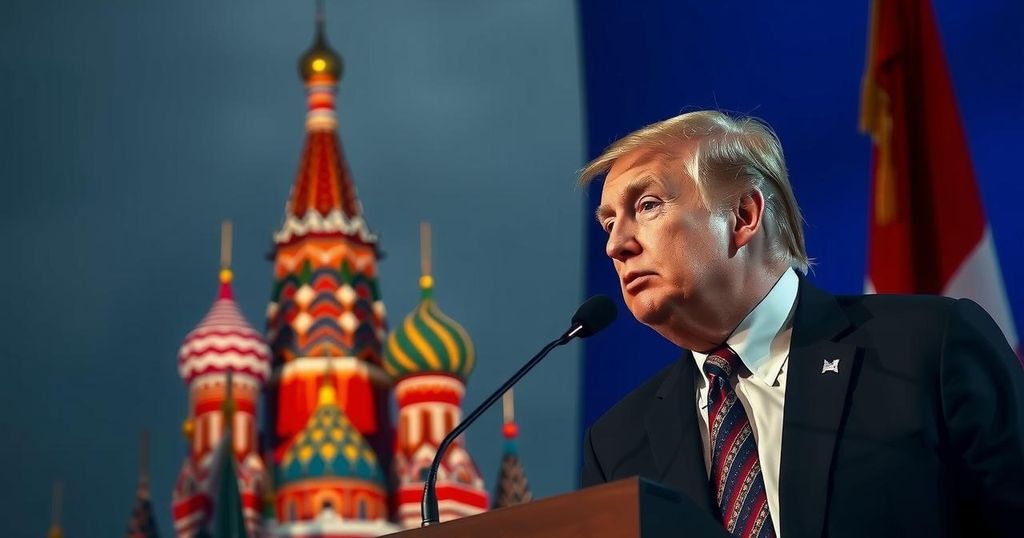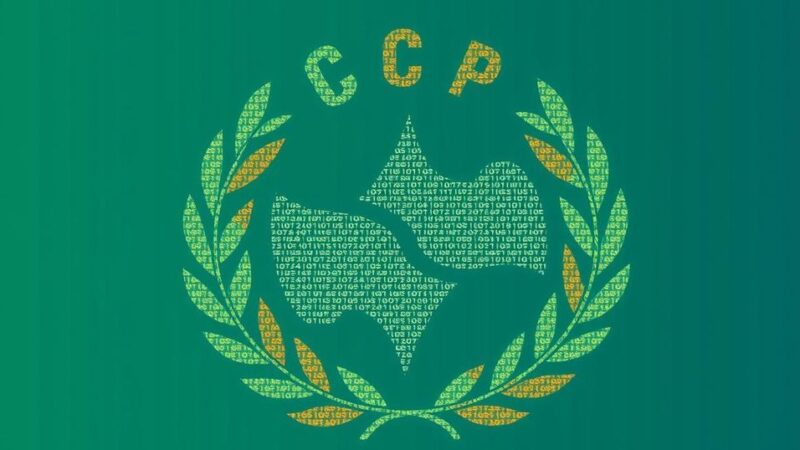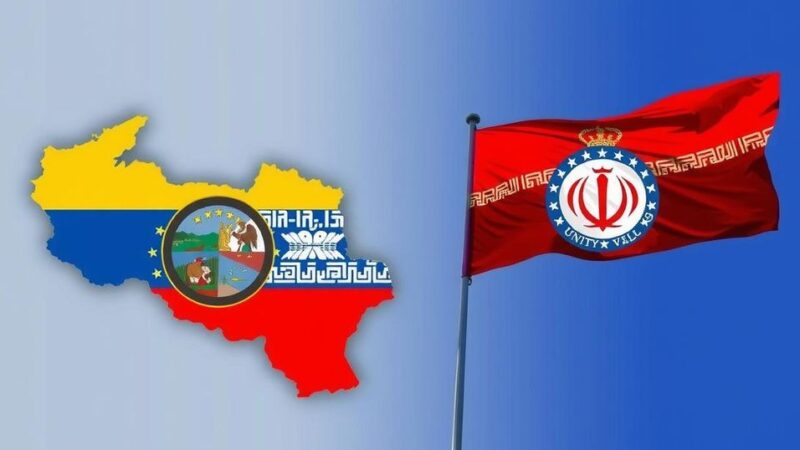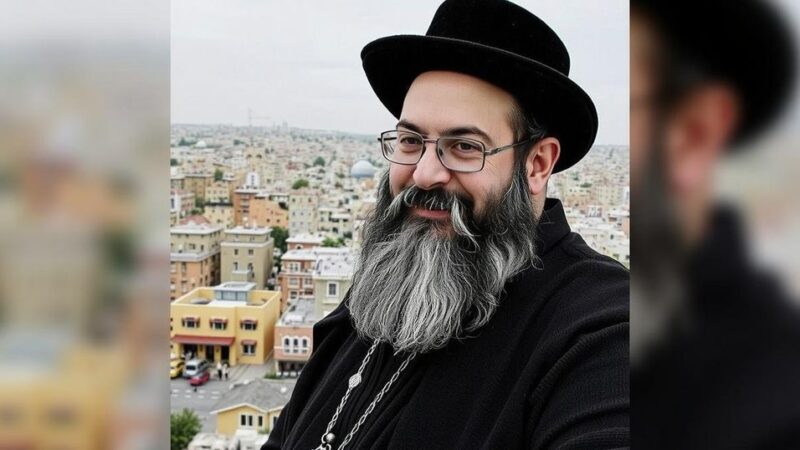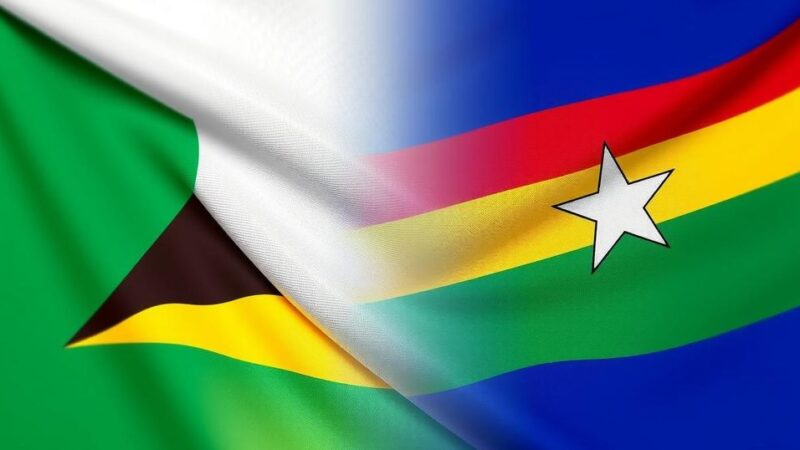The article details the shift in Moscow’s sentiment regarding Donald Trump’s presidency. Initially, Trump’s 2016 victory sparked optimism for improved US-Russia relations, but following significant sanctions during his tenure, Russian officials have adopted a more cautious stance regarding his possible re-election. This newfound wariness is accompanied by a mixed public opinion in Russia, where some see America as an adversary, while others yearn for friendship and peace, regardless of the US political landscape.
Moscow’s initial enthusiasm for Donald Trump’s presidency has significantly waned as the prospect of his potential second term approaches. In 2016, Russian political figures, including ultranationalist politician Vladimir Zhirinovsky, expressed excitement upon Trump’s electoral victory, reflecting hopes of improved US-Russia relations and a lifting of sanctions. Some, like Margarita Simonyan of RT, even celebrated publicly, anticipating a significant shift in diplomatic ties. However, these expectations soon diminished as Trump’s administration implemented substantial sanctions against Russia, leading to widespread disappointment among Russian officials and the general populace. As a result, there is a noticeable caution among Kremlin leaders regarding Trump’s possible re-election. While President Vladimir Putin has ostentatiously endorsed Democratic candidate Kamala Harris in what was largely perceived as a jest, it is Trump’s stance on issues such as US military aid to Ukraine and his relative exoneration of Putin that appear to draw approval from the Kremlin. Furthermore, Russia seems to expect that a closely contested US election could lead to political turmoil, diverting American attention from foreign policy matters, including the ongoing conflict in Ukraine, which has seriously strained US-Russia relations in recent years. This tension has been exacerbated under President Biden’s administration, following a period of deterioration during Trump’s presidency. Historically, US-Russia relations have fluctuated between partnership and hostility, as evidenced by past disarmament discussions between leaders like Ronald Reagan and Mikhail Gorbachev. Today, amidst deteriorating ties, public opinion in Moscow presents a spectrum of views towards the United States, from outright contempt to a desire for friendship and peace. Some Russians, like Svetlana and Nikita, express a hope for cool-headed relations despite the current geopolitical climate, and even favor Trump, while others lament the lack of free speech on both sides. With the US elections on November 5 approaching, the opinions gathered from various individuals at Novodevichy Park reflect a complex and often contradictory view of America’s role in global politics, illustrating a deep-seated ambivalence in Russian public sentiment toward the United States.
The article discusses the cautious approach of Moscow and Russian officials regarding the potential re-election of Donald Trump as President of the United States. Initially, Trump’s victory in 2016 sparked hope for improved US-Russia relations among Russian nationalists and state media. However, following the implementation of severe sanctions during his presidency, expectations shattered. This context illustrates the complex and often adversarial history of US-Russia relations, marked by fluctuations in diplomatic postures as different US administrations have engaged with Russia. Additionally, the article explores public sentiment in Moscow regarding American politics, revealing a mix of disdain and a yearning for cooperation that persists amid escalating tensions.
Overall, as the 2024 election nears, Russian sentiment appears more cautious than celebratory regarding the prospect of Donald Trump returning to office. The domestic repercussions of this election within the United States and its implications for foreign policy, particularly concerning Ukraine, remain critical areas of concern for the Kremlin. Moreover, the nuanced public opinions within Russia highlight a broader desire for peaceful coexistence despite historical enmity. Russian perceptions of a potential Trump presidency—once filled with hope—now are replaced with a degree of skepticism, reflecting the complexities of international relations in a turbulent era.
Original Source: www.bbc.com
